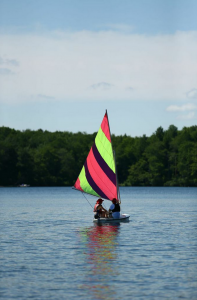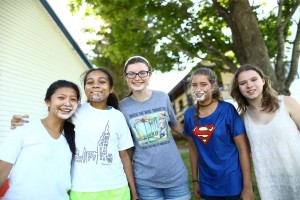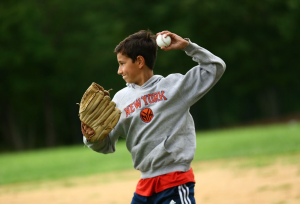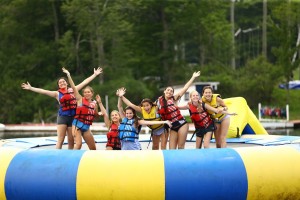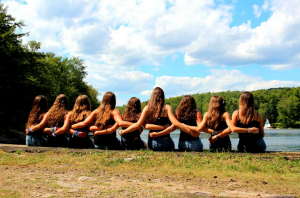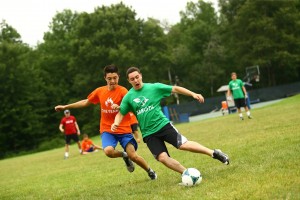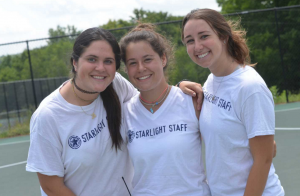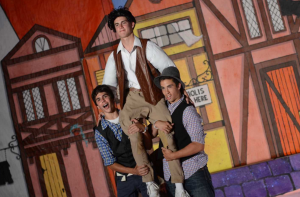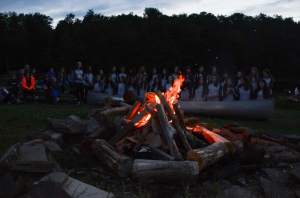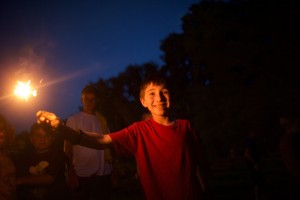
Lights out doesn’t have to mean the fun is over; after all, our summer camps are the perfect places for stargazing! All you need is a clear sky, a few tips and pointers, and of course a helpful counselor.
Once you figure out how to find the north star, it’s a slippery slope to becoming an astronomy expert. Who wouldn’t want to be knowledgeable about this beautiful universe of ours?
Here are four of the easiest constellations to locate during the summer months at camp, and how to find them.
The Big Dipper
For many aspiring astronomers, the big dipper is the first constellation they ever discover. The Big Dipper is visible all year round, making it a dependable friend even if you aren’t an astronomy master.
The distinctive dipper or ladle shape is hard to miss, since it’s composed of a few of the brightest stars in the sky. Take a look at the shape in the picture below; this is what you’re looking for.

Found it? Awesome!
Beyond being dependable, the Big Dipper is your secret key to the celestial world. Once you can find the Big Dipper, you can use it to pinpoint many other constellations.
Now let’s use the Big Dipper to find our next constellation: the Great Bear.
The Great Bear
The Big Dipper is actually part of the Great Bear, so if you’ve already located that elusive ladle then you’re literally halfway there. Hint: the handle of the dipper is the tail of the bear.
Look for the brightest stars directly forward from the dipper part of the Big Dipper to find the bear’s head, and extend downwards from the dipper’s bottom to find the bear’s legs. Can you spy the Big Dipper in this picture?

The Little Dipper
The Big Dipper isn’t done helping us; we’re also going to use it to help us find its smaller but no less important sibling, the Little Dipper!
Find the two stars that make the “front” of the Big Dipper and draw a line with your imagination upwards. The brightest star in that line is the end of the Little Dipper’s handle.

The Little Dipper is much fainter than the big dipper, and if any wispy clouds are hanging around it might be quite tricky to find. But there is a reward! That bright star forming the end of the Little Dipper’s handle is none other than Polaris, the north star.
If you can get this far, you have everything you need to find your way in the wilderness. North is always the direction of the North Star, which is why sailors used to be so concerned with astronomy in the old days. Pat yourself on the back!
Draco
Everyone loves dragons, so let’s finish by finding the dragon constellation, Draco. We can use the Little Dipper as a reference point, just like we did before.
The snakey part of Draco wraps around the spoon part of the Little Dipper in a giant “s” shape, leading up to the “head” of the dragon — a suspiciously ladle-like four-point star formation, as you can see in the shape here:
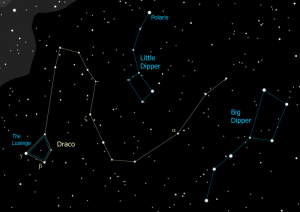
Show off your new astronomy skills to your friends!
Astronomy is like everything else at camp: challenging, but rewarding. And most importantly, tons of fun.
The best part about these four constellations is that they’re visible all year around. Be sure to show your friends at camp, or if you’re a counselor, be sure to teach your campers. That way they can take their newfound astronomy skills away with them and show their friends at home!
When they ask where you learned something so cool, you can just say, “at one of America’s Finest Summer Camps!”

 570-798-9831
570-798-9831
